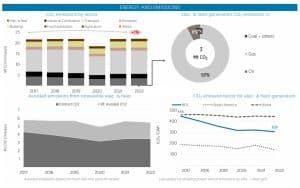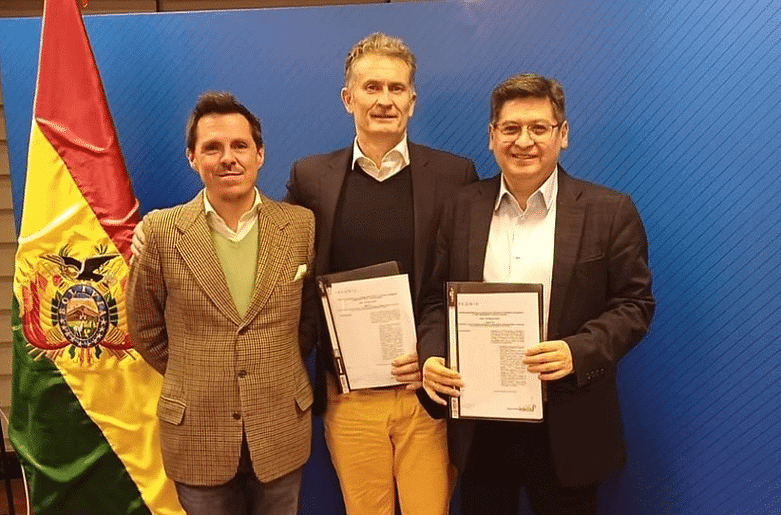Laconic Infrastructure Partners Inc. (Laconic), a Public Benefit Corporation (PBC) founded in 2021 and headquartered in Chicago has announced a new mandate from the Plurinational State of Bolivia. The agreement authorizes Laconic to deploy its unique SADAR™ Natural Capital Monetization (NCM) platform to facilitate technology transfer and bolster Bolivia’s capacity-building efforts.
Notably, Bolivia could generate up to $5 billion, funding sustainability projects that align with global climate goals from this groundbreaking model.
Marcelo Montenegro Gomez Garcia, Minister of Economy & Public Finance of Bolivia emphasized,
“The Plurinational State of Bolivia is committed to completely ending deforestation within our territorial borders by 2030. By working with Laconic, we have been able, for the first time, to generate sufficient development financing to enable our country to make this commitment a reality and enhancing our ambition under the Paris Agreement. This benefits not only our own citizens, but all of mankind, as we collectively strive to meet NetZero 2050.”
Empowering Bolivia’s Carbon Market with Laconic’s Innovative Technology
Laconic offers advanced environmental intelligence and data management solutions. They empower governments, corporations, and financial institutions to engage openly and fairly in the carbon market.
Image: Energy and Emissions Bolivia 2022

Source: IRENA
The SADAR™ NCM platform
The company’s one-of-its-kind SADAR™ NCM platform will help Bolivia secure funding for its enhanced NDC goals. The AI-powered platform delivers an essential, unchangeable data store and a structured information exchange that carbon markets need to operate effectively.
Explaining further SADAR’s carbon securitization technology can transform Bolivia’s environmental assets into financial capital.
This platform will function in the following ways:
- Aggregate and analyze large-scale data streams from Bolivia’s extensive natural resources. Laconic’s platform can monetize both current and future carbon stocks.
- Potentially generate up to $5 billion for Bolivia, thereby creating a robust funding stream for sustainability projects that align with global climate commitments.
Bolivia’s collaboration with Laconic comes at a critical moment for the global carbon market. Through Laconic’s SADAR™ platform, Bolivia can ensure its compliance with the Paris Agreement as well as with local and regional regulations. This is how the government can focus on expanding its NDC ambitions and global decarbonization efforts.
Laconic signed a new Memorandum of Understanding (MOU) with the State of Espirito Santo, Brazil last month. This agreement will also incorporate Laconic’s SADAR™ Platform and Natural Capital Monetization (NCM) services and explore how they can support the state in creating a digital platform to help meet Brazil’s climate goals.
The company revealed that for the first time, all carbon market participants have timely access to the right information, ensuring liquidity and compliance for large-scale trading in global financial markets.
Check out Lanconic’s CEO Andrew Gilmour’s take on how AI and financial innovation can save the planet
Sovereign Carbon: The Carbon Financing Mechanism
The platform will manage Bolivia’s carbon assets as a “Sovereign Carbon” product. Creation of a Sovereign Carbon product is the only scalable way to mobilize the $1 trillion in annual carbon trading, required to meet collective net zero goals.
This capability provides governments with an efficient mechanism to monetize natural capital on a global scale. Subsequently enabling institutional investors to purchase bona fide securities backed by carbon assets.
CEO Andrew Gilmour remarked,
“Laconic is honored to be working with the Plurinational State of Bolivia to champion the innovative Sovereign Carbon market. This transaction demonstrates the power of technology to drive change in emerging markets finance, as, for the first time, we are able to collectively harness market forces to generate more economic growth from the preservation of natural capital assets than from the exploitation of them. Put simply – our technology has made it possible to make more money preserving your forests than you can by cutting them down.”
This initiative not only strengthens Bolivia’s role in the global carbon market but also sets a promising precedent for Article 6-compliant carbon financing, supporting global climate goals through innovative financial solutions.

